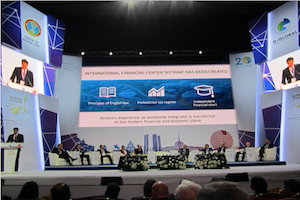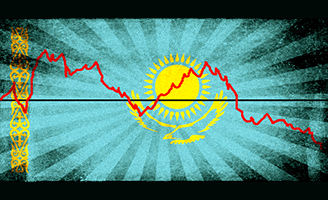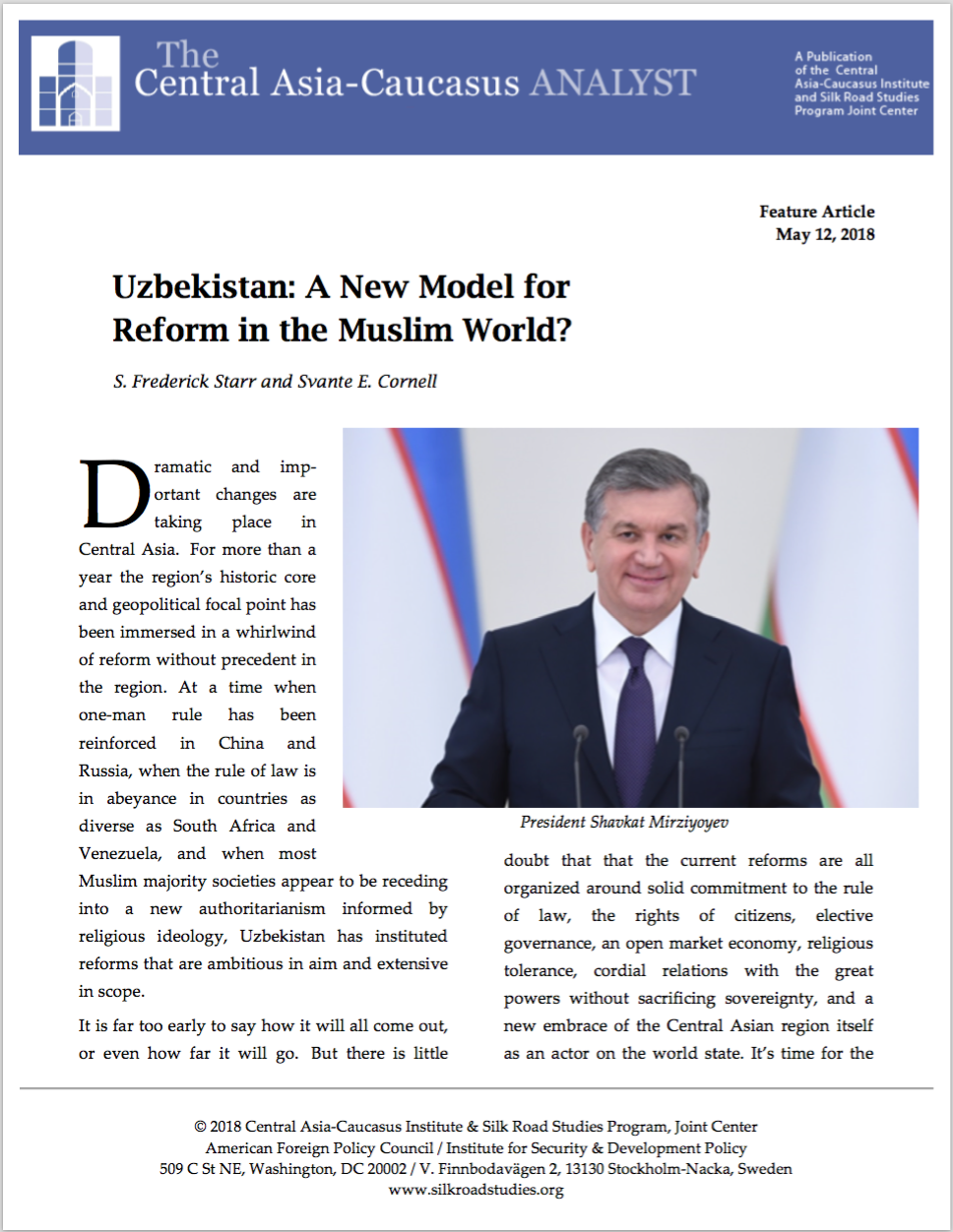Building the Great Financial Silk Road: Hub by Hub
By Rafis Abazov
October 16, 2018, the CACI Analyst
During the Astana Financial Days event in July 2018, President Nursultan Nazarbayev of Kazakhstan announced and personally endorsed the opening of the Astana International Financial Center (AIFC). He envisions that the AIFC will provide financial services “not only for Kazakhstan, but also for the whole world.” If successful, the AIFC can contribute to diversifying the financial resources for Kazakhstan’s national and international projects. Through its proper implementation, the government of Kazakhstan can develop a tool for improving collaboration with neighboring countries in Central Asia in the industrial, agricultural and tourism sectors, making the Central Asian section of the Silk Road more attractive for business and financial deals. In addition, the Center can become a real financial hub not only for Kazakhstan and Central Asia but also for the wider Eurasia region if it is capable of attracting enough financial resources from large international players.

Uzbekistan: A New Model for Reform in the Muslim World?
Uzbekistan: A New Model for Reform in the Muslim World?
Dramatic and important changes are taking place in Central Asia. For more than a year the region’s historic core and geopolitical focal point has been immersed in a whirlwind of reform without precedent in the region. At a time when one-man rule has been reinforced in China and Russia, when the rule of law is in abeyance in countries as diverse as South Africa and Venezuela, and when most Muslim majority societies appear to be receding into a new authoritarianism informed by religious ideology, Uzbekistan has instituted reforms that are ambitious in aim and extensive in scope.
It is far too early to say how it will all come out, or even how far it will go. But there is little doubt that that the current reforms are all organized around solid commitment to the rule of law, the rights of citizens, elective governance, an open market economy, religious tolerance, cordial relations with the great powers without sacrificing sovereignty, and a new embrace of the Central Asian region itself as an actor on the world state. It’s time for the world to take stock of this startling development.
CACI Analyst, April 29, 2015
Contents
Analytical Articles
RUSSIA'S REGULATION OF LABOR MIGRATION SET TO HURT CENTRAL ASIAN ECONOMIES, by Nurzhan Zhambekov
MOSCOW CFE KILL THREATEN CAUCASUS STABILITY, by Richard Weitz
CAUCASUS EMIRATE FACES FURTHER DECLINE AFTER THE DEATH OF ITS LEADER, by Emil Aslan Souleimanov
KAZAKHSTAN AND NEIGHBORS SEEK STRATEGIES TO COUNTER EMERGING THREATS, by Jacob Zenn
Field Reports
KYRGYZSTAN'S PRIME MINISTER RESIGNS, by Arslan Sabyrbekov
ISLAMIC STATE REACHES OUT TO GEORGIA, by Eka Janashia
ARMENIA'S PRESIDENT VISITS THE VATICAN, by Erik Davtyan
AZERBAIJAN DEMOTED TO EITI CANDIDATE, by Mina Muradova
Hanging in The Trade Balance: Is Free Trade a Curse for Kazakhstan?
By Sergei Gretsky (06/10/2015 issue of the CACI Analyst)
The creation of the Eurasian Economic Union (EEU) was presented as a vehicle for economic development of Belarus, Kazakhstan, and Russia as a result of the removal of barriers to free movement of goods, capital, and labor between the three states and creating a common market. Its inauguration on January 1, 2015, happened at a very inopportune moment as Russian economy, the largest of the three, was sharply contracting due to falling global commodity prices and western sanctions over Ukraine. Economic recession in Russia has had a negative ripple effect on Belarusian and Kazakhstani economies, which led some in Kazakhstan to second-guess the benefits of joining the EEU.

Azerbaijan and Kazakhstan Face Tough Economic Decisions amid Decreasing Oil Price
By Nurzhan Zhambekov (04/01/2015 issue of the CACI Analyst)
Azerbaijan and Kazakhstan face a tough year as oil prices plummet. A dramatic shift has occurred in the international oil market in recent months as oil supply has gone up, particularly with the U.S. oil production increase, and demand has weakened with the economic slowdown in China and the EU. Saudi Arabia, the world’s second largest oil producer, did not reduce its oil production despite the oil price decline, indicating that it would like to maintain its international oil market share. The precipitous decline in oil prices has resulted in a sharp fall in export revenues for Azerbaijan and Kazakhstan, the third and second largest oil producers respectively in the former-Soviet Union after Russia. This dramatic price drop has put the two countries’ currencies under severe pressure.







